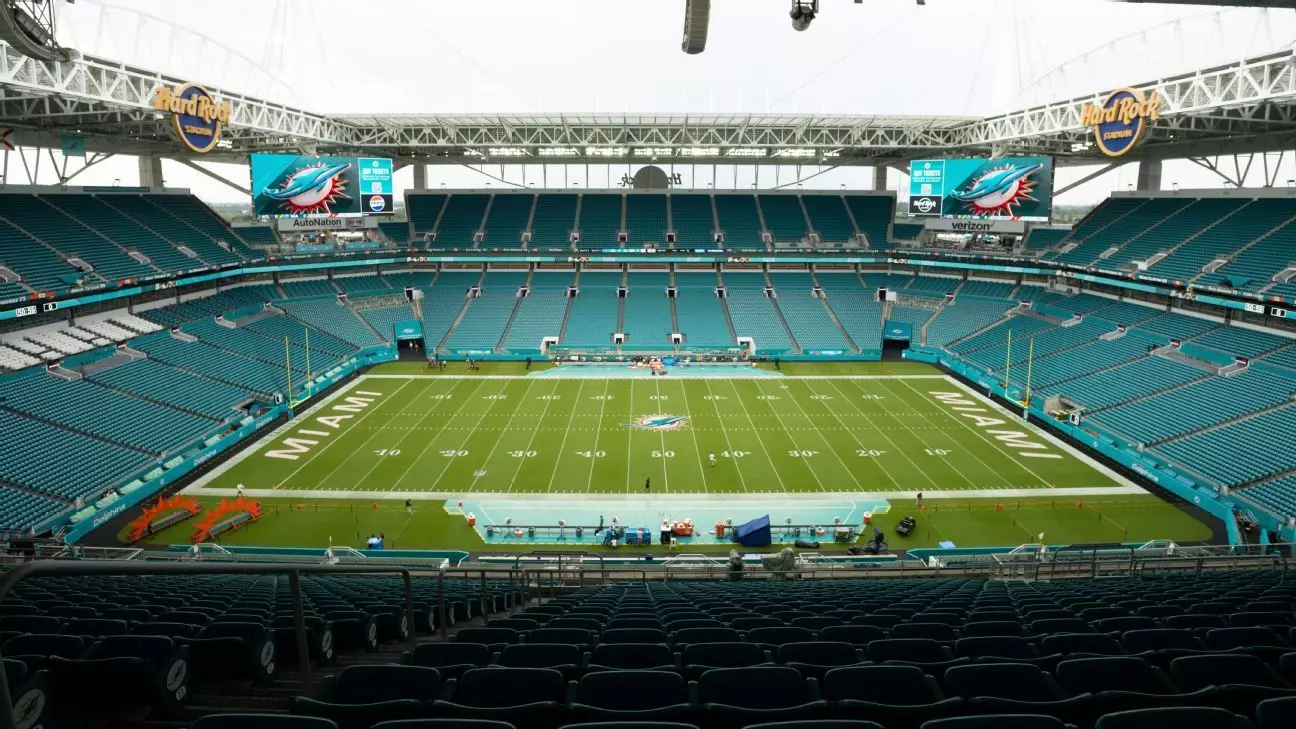Javier Tebas, the president of LaLiga, has set his sights on an audacious goal: to host a competitive league match in Miami. This proposal, aimed at expanding the league’s reach and engaging with a broader international audience, aligns with a pattern of globalization seen across major sports leagues. Tebas’s ambitions, however, are not without complications, as they depend heavily on negotiations with the Spanish Football Federation (RFEF). The excitement generated by such plans must be balanced against the existing regulatory frameworks and the logistics required to execute them.
The idea of staging a LaLiga match in the United States is not a novel one. In 2018, there were plans to bring Barcelona and Girona to Miami’s Hard Rock Stadium, but these ambitions were thwarted by significant opposition from both the RFEF and FIFA. The pushback from these organizations stemmed from a concern over traditional values in football, the integrity of domestic leagues, and the potential ramifications of allowing league matches to be played abroad. This historical context is vital in understanding the current climate surrounding Tebas’s renewed ambitions, as the sentiment towards international matches has been mixed and fraught with legal and administrative challenges.
Despite these challenges, the situation has shifted with the recent developments surrounding Relevent Sports Group, the company associated with Miami Dolphins owner Stephen Ross. The lawsuit initiated by Relevent Sports in 2019, which sought to overturn FIFA’s restrictions on hosting league games outside of their stipulated territories, highlights the changing landscape of international soccer governance. With FIFA agreeing to drop its involvement in the ongoing legal battles, the door seems to have opened wider for LaLiga to explore its options in the U.S. market. Yet, Tebas remains cautious, acknowledging that formal agreements with the RFEF are still a prerequisite to moving forward. This intricate interplay of legal dynamics and sporting ambitions illustrates the complexities involved in international sports expansion.
As the discussion about a potential match in Miami unfolds, it takes place against a backdrop of growing tensions within player unions and league organizations. The announcement of an expanded Club World Cup slated for the summer in the United States has only exacerbated concerns among players regarding fixture congestion. As noted by Rodri, a Spanish midfielder, the looming threat of a player strike has become an increasingly likely measure as more fixtures are added to an already packed schedule.
David Aganzo, the president of the Spanish Players’ Union (AFE), has also voiced strong opposition to the current state of affairs, indicating that players might have no choice but to strike if their demands regarding fixture congestion are not met. These rising tensions create a complex scenario for Tebas, who must navigate the desires of fans and the expectations of players while advocating for the growth of LaLiga.
A Balancing Act: Expansion vs. Player Welfare
The dichotomy of supporting a LaLiga match in the U.S. while simultaneously opposing the expanded Club World Cup highlights a delicate balancing act. Tebas argues that the push for a U.S.-based match should not conflict with concerns over player welfare that arise from an increasingly congested calendar. His remarks come in the wake of misunderstandings stemming from criticisms made by player representatives about the motivations behind the international match proposal.
Tebas’s assertion that supporting a match in the U.S. does not contradict his opposition to the Club World Cup underscores the nuanced nature of his role as a league president. By promoting international exposure for LaLiga, he seeks to enhance the brand’s value while also championing the need for sustainable practices that safeguard player interests.
The potential for LaLiga to extend its reach with a competitive game in Miami remains uncertain yet enticing. As discussions continue and negotiations unfold, the ability to align the interests of various stakeholders will be crucial. Whether or not this match materializes in the next season, it represents a significant chapter in the ongoing narrative of sports globalization. For now, the fascination with bringing Spain’s footballing tradition to the U.S. will continue to engage both fans and officials, highlighting the innate tension between tradition and the modern realities of international sport.
